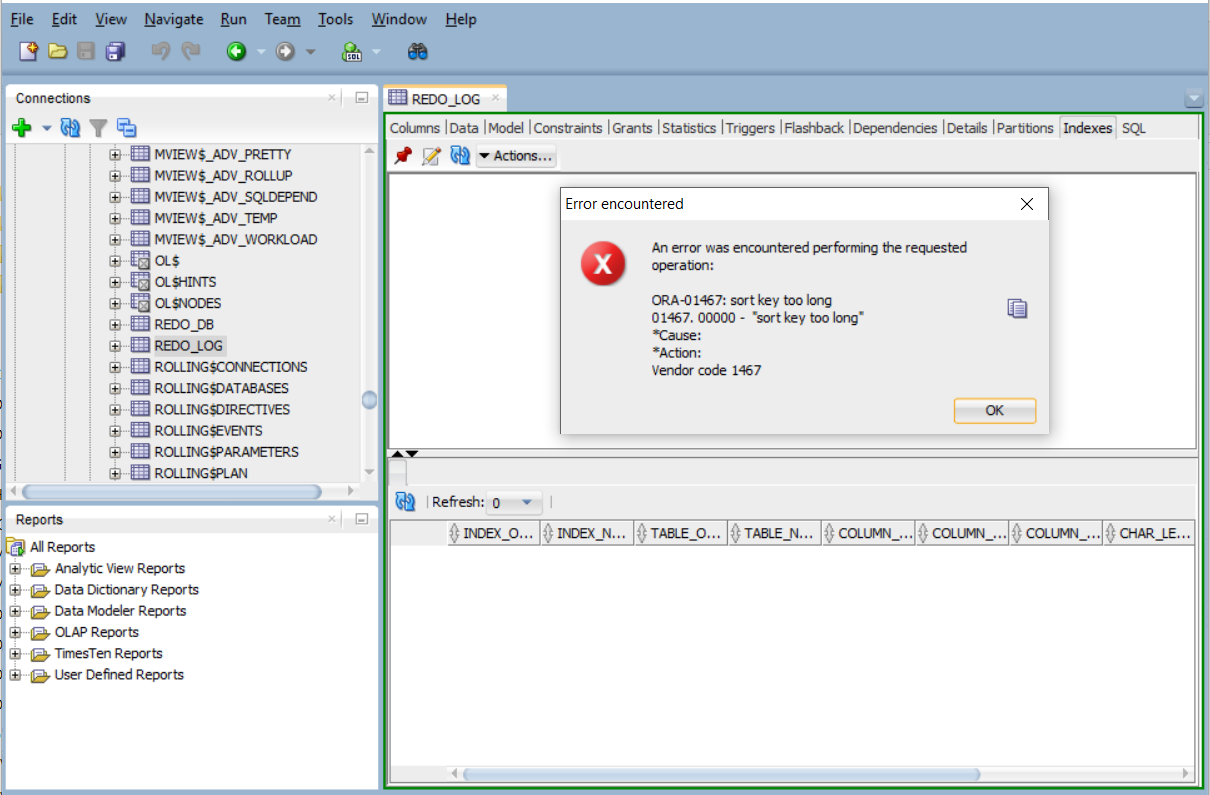When selecting a table from any schema and clicking on the Indexes tab, I get an ORA-01467: sort key too long error. This happens in version 18.2 as well as earlier versions of SQL Developer (17.x). See image below.
Is there any way to fix this? I'm purposely showing a SYSTEM schema table so that it removes questions as to whether the problem exists only in my application database objects. I am using SQL Developer 18.2 on a Windows 10, 64-bit OS connected to a 12.2 database.
